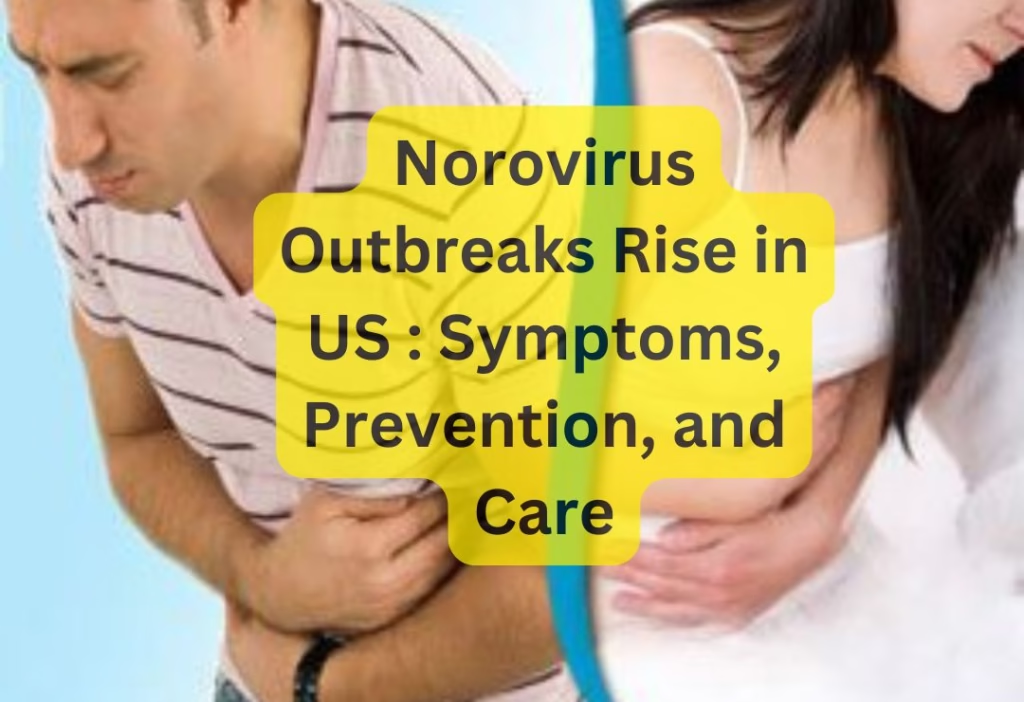Norovirus Cases Are on the Rise in US
This winter, the US has seen a big jump in norovirus outbreaks. The Centers for Disease Control and Prevention (CDC) has reported this. Starting in early December, the number of cases has gone up a lot compared to previous years.
This has raised concerns about the spread of this highly contagious stomach bug.
What Does the Data Say?
Centres for Disease Control and Prevention (CDC) confirming 91 outbreaks during the week of December 5. This marks a noticeable rise from the 69 outbreaks recorded in late November. Historically, the first week of December averages no more than 65 outbreaks.But with 19 to 21 million illnesses each year in the United States, norovirus nevertheless causes on average 900 deaths and 109,000 hospitalizations annually, mostly among adults aged 65 and older. It also leads to 465,000 emergency department visits, mostly involving young children.
This surge highlights the need for increased awareness and prevention efforts.
Norovirus spreads quickly, spreading in crowded spaces like cruise ships, nursing homes, schools, and other group settings. Let’s take a closer look at what norovirus is, how it spreads, and what you can do to protect yourself.
What Is Norovirus?
Norovirus is a stomach virus which is the leading cause of foodborne illness in the United States. It accounts for 58% of all food-related infections annually. Novoviruse spreads very easily, with as few as 10 viral particles having the ability to make someone sick, health experts say. On average, around 2,500 outbreaks are reported in the US each year. Peak activity is from November to April.

Symptoms of norovirus include:
- Sudden vomiting
- Diarrhea
- Nausea
- Stomach pain
- Body aches
- Headache
- Fever
These symptoms typically start 12 to 48 hours after exposure. They last for 1 to 3 days. Most people recover without needing medical care, but some populations is at higher risk of complications .
Who is at risk ?
- Young aged children
- Older population (aged 65 and above)
- People with weakened immune systemsFor these groups, dehydration caused by vomiting and diarrhea can lead to serious health issues. Signs of dehydration include dry mouth, dizziness, fatigue, and reduced urination. Children may become unusually sleepy or fussy and cry with little or no tears.
How Norovirus Spreads
Norovirus is extremely contagious and can spread in several ways:
- Person-to-person contact: Sharing food, utensils, or close interactions with infected individuals.
- Contaminated food or water: Consuming food or drinks that have been exposed to the virus.
- Touching infected Surfaces: Touching surfaces where the virus lingers—it can survive for days in the environment.
Outbreaks are common in places where people are in close quarters, such as cruise ships, long-term care facilities, schools, and jails.
Managing Norovirus If You’re Sick
There’s no specific medication for norovirus. Recovery focuses on managing symptoms, like rehydration. Drink plenty of fluids like water, oral rehydration solutions, or clear broths. Avoid beverages like coffee, tea, or alcohol, as they can worsen dehydration.
When to Seek Medical Help
If you or someone you care for shows signs of severe dehydration, it’s time to get medical attention. Symptoms include:
- Extreme fatigue
- Dizziness
- A significant drop in urination
- Dry mouth or throat
In children, look for unusual drowsiness, irritability, or crying with few or no tears.
Preventing the Spread of Norovirus
Here’s what you can do:
Wash your hands often: Use soap and warm water for at least 20 seconds, before eating and after using the restroom. Hand sanitizers are not much effective against norovirus, so frequent handwashing is very essential.
Clean and disinfect the surfaces: Use household disinfectants on high-touch areas like doorknobs, countertops, and light switches.
Be vigilant in group settings: Schools, nursing homes, and other shared spaces should have strict cleaning protocols to limit outbreaks.
Final Thoughts
Although this virus is very deadly, most people who are infected by it recover within a few days. It causes extreme harm to some people like small children and old people with weak immunity. That is why protection from it should be our priority. For that we should wash our hands frequently, avoid touching surfaces and drink a lot of water.



